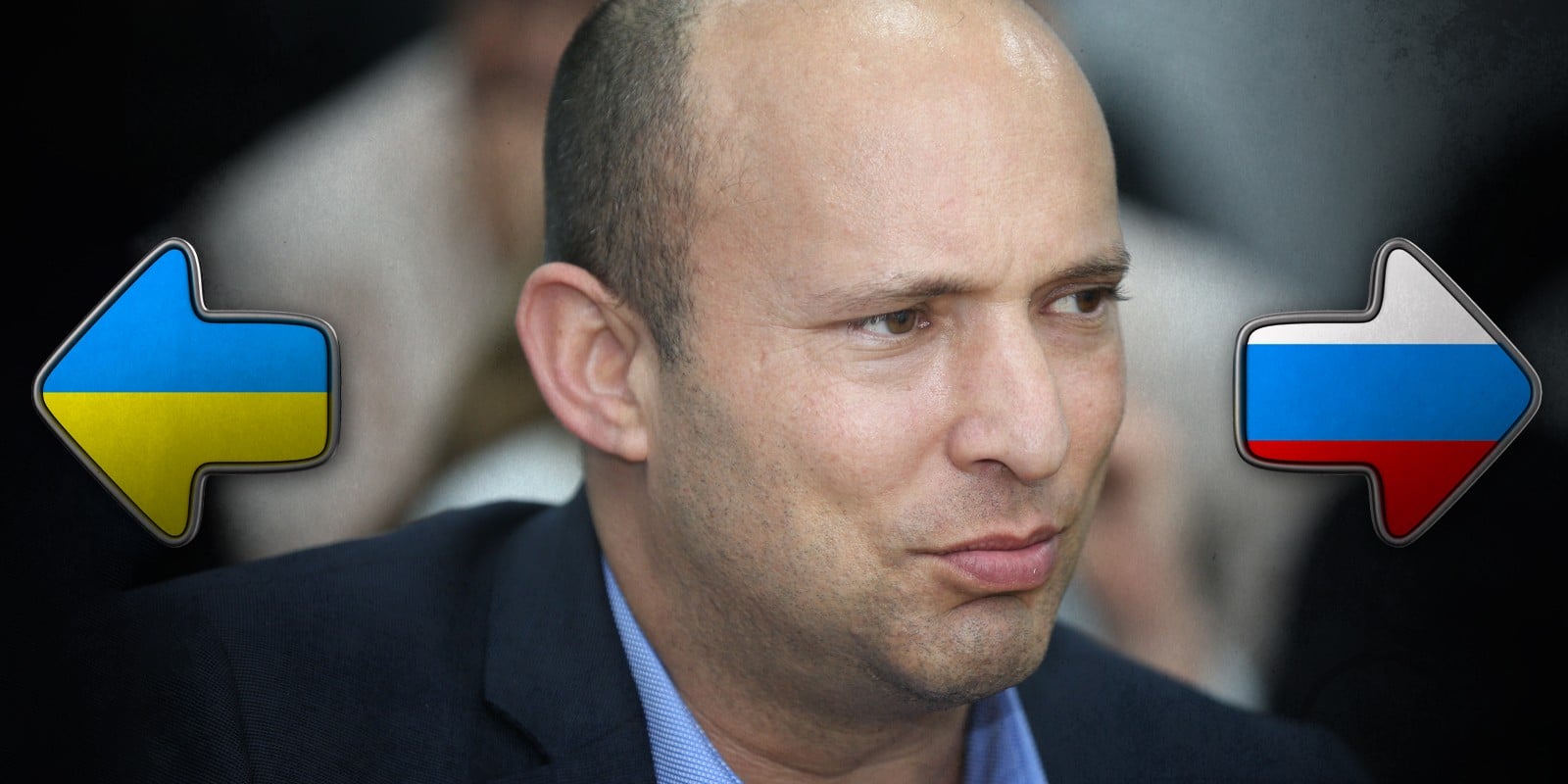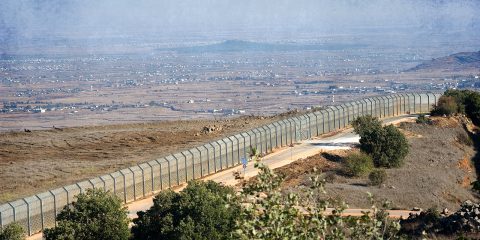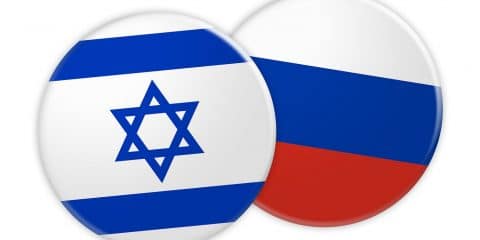The Israeli government has not publicly expressed a position regarding the gathering of Russian forces on the Ukrainian border. Still, a renewed war between Russia and Ukraine could make it challenging to choose between its commitment to its Western allies and its important relationship with Russia.
New satellite images show Russia continues to gather its forces near the Ukrainian border in recent weeks. Reuters reported on Friday that it could not independently verify the images from US-based Maxar Technologies, showing new deployments of hundreds of armored vehicles and tanks in annexed Crimea.
Meanwhile, a high-ranking Ukrainian official claimed his country controls the situation, and that escalation is not imminent.
Moscow has put forward a series of public demands for the West, focusing on reaching legally binding agreements to halt NATO expansion and the deployment of weapons systems in neighboring countries that Russia perceives as a security threat. It also demanded dealing with the approval of the Nord Stream 2 gas pipeline from Russia to Germany and its diplomatic representation vis-à-vis the US.
On Thursday, Russian President Vladimir Putin said it had received an initial positive response from the US on its proposals to tone down the tensions and was hopeful for the success of negotiations. However, he also said that NATO had “brazenly tricked” Russia by expanding since the end of the Cold War and needed “guarantees,” reported Reuters.
The negotiations underway between Moscow and Washington on nuclear weapons control and cyber weapons are expected to resume on January 10, focusing on the new Russian demands regarding NATO expansion and offensive weapons deployment.
If Russia invades Ukraine, the United States and Western countries threaten to raise unprecedented political and economic costs on Moscow. Still, there is no Western intention to enter a military confrontation with Russia.
The dilemma for Israel
Israel is far from the Ukrainian arena and is incapable of accurately assessing Russia’s intentions of invading. Currently, the Israeli government evades dealing with this crisis that might deepen its dilemma regarding relations with Russia, and more broadly, its approach to competition between the major powers.
Jerusalem has forged a unique path in international relations in recent years. It does not confront Moscow publicly on the Ukrainian issue and refrains from joining Western collective punitive measures against Russia (sanctions, political isolation, and deportation of spies).
But, on the other hand, the West also shows an understanding of Israel’s need to talk to the Kremlin, especially considering the neighborly relations between Israel and Russia following Moscow’s military intervention in the 2015 civil war in Syria.
Israel-Russia relations are at an all-time high, and in the last thirty years, have developed considerably compared to the Soviet period.
Russia allows Israel military freedom of action against Iran and its proxies in Syria. It makes gestures, such as returning the remains of US-born Israeli soldier Zachariah Baumel, who went missing in the battle of Sultan Yacoub.
Russia expects Israel to help it reach political agreements in the Middle East in cooperation with the United States. Israel has a population of over one million Russian speakers, serving as a cultural bridge between the countries. Bilateral trade is about two to three billion dollars a year. Russia also values Israel’s positive stance on the role of the Red Army in World War II and its fighting against Nazi Germany.
If the crisis between Russia and Ukraine escalates, Israel would be compelled to adjust its current policy. The Biden administration and its Western allies could pressure Israel more rigorously than in the past to publicly take a side and join the Western camp condemning Russia.
Israel’s refusal to do so would add to a series of disagreements with Washington over the Iranian nuclear program, the Palestinian issue, offensive cyber exports, and more.
At the same time, Israel must constantly examine and balance its policies between the US and Russia. While the United States is focused on the Chinese threat, it is withdrawing from the Middle East.
As a result, it suffers from an image of weakness among the region’s players. Meanwhile, Russia and China are gaining leverage to affect important issues for Israel, such as Moscow’s role as a moderator between Iran and the West and Russia’s influence over Israel’s freedom of action in Syria.
Policy recommendations
Russia is not expected to disappear from Israel’s northern border in the foreseeable future. Therefore, Israel’s leadership must pay close attention to escalation scenarios between Russia and the United States and adapt its position accordingly.
A new and uncomfortable status quo may soon be established in relations between the global powers. Israel will likely prefer to chart a vague position between Russia and the West.
Israel should not wait for a crisis to break out but take advantage of the situation to formulate a national strategy, which is required even if Russia does not invade Ukraine. Such a strategy should balance adherence to the historic alliance with the United States and the need for Jerusalem to retain freedom of maneuver vis-à-vis the other powers.
Israel must initiate consultation mechanisms with its Western allies and position itself as a possible power broker with Russia on regional issues. Israel should also have a clear position in what realms to develop its cooperation with Russia and where to restrict it.
Despite other pressing issues on the Israeli agenda, failing to engage in policy planning concerning Russia might lead to unnecessary improvisation and hurt Israeli interests.
JISS Policy Papers are published through the generosity of the Greg Rosshandler Family.
Photo: Shutterstock








 - בניית אתרים
- בניית אתרים